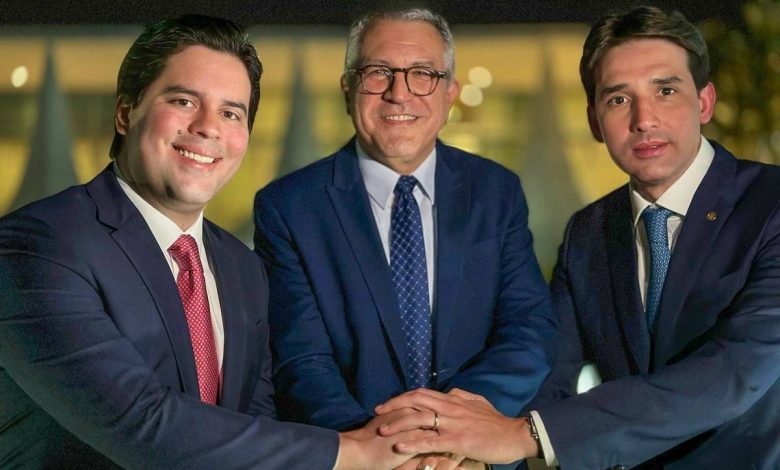
President Lula Officializes Cabinet Reshuffle, Preserving PT’s Influence
Date
The President of Brazil, Lula (PT), has officially carried out the first major cabinet reshuffle of his government after about two months of lengthy negotiations. The changes preserved the PT, the President’s party, but resulted in another minister being dismissed and replaced by a man. Ana Moser, the Minister of Sports, was relieved of her duties.
The Palácio do Planalto sought to form alliances with centrão parties that were previously allied with Jair Bolsonaro’s government. In exchange for support in the National Congress, Lula made room for the Progressive Party (PP) and the Republicans. Combined, these parties have 49 and 41 deputies, respectively.
With Ana Moser’s departure, Lula loses the record for the number of women in the first echelon, which was widely praised during the government transition. Initially, there were 11 women out of 37 cabinet members. Now, there are 10 out of 38. The highest number until then was during Dilma Rousseff’s presidency (PT), with 10 women out of 37 ministers.
Prior to the dismissal of the Minister of Sports, Lula had already replaced Daniela Carneiro from the Ministry of Tourism with Celso Sabino in July.
The dismissal of the former athlete occurs at a time when the President is under pressure to increase the participation of women in his appointments. There is a movement advocating for the nomination of a black woman to the Supreme Federal Court to replace Rosa Weber. However, according to presidential aides, the current trend is for him to appoint a close ally with whom he has a relationship of trust. The most likely candidates are all men: Minister Jorge Messias (Attorney General’s Office), Minister Flávio Dino (Justice), and President of the Federal Court of Accounts, Bruno Dantas.
For the first vacancy he was able to appoint to the Supreme Court, he chose his lawyer Cristiano Zanin, disappointing activists’ expectations.
The reduction of female representation in the government could have been even greater. The Ministry of Luciana Santos (Science, Technology, and Innovation) was initially at risk of being included in the negotiations, but this hypothesis was dismissed.
Lula had already informed the PT leadership on August 2nd that accommodating the neo-allies of the centrão would involve sacrifices in ministries led by PT members and the Brazilian Socialist Party (PSB), as well as by ministers with no political patronage. The promise was only partially fulfilled. The reform affected the PSB, but at least in the first echelon, the PT was protected.
Márcio França (PSB), the Minister of Ports and Airports, was moved to the new Ministry of Micro and Small Business. Initially, he resisted the idea, considering the new ministry too small. He advocated for boosting the ministry, which the Planalto eventually accepted.
The PSB also complained during the negotiations that the government was making room for parties that had recently been allied with Bolsonaro. Indeed, factions of the Republicans and the PP are still very close to Bolsonaro’s camp and were against joining the government.
However, the Northeastern caucuses of these two parties supported Lula predominantly and worked to secure the alliance this year.
André Fufuca (PP-MA) will assume the Ministry of Sports, and Silvio Costa Filho (Republicans-PE) will take over the Ministry of Ports and Airports.
In addition, it is expected that the PP will also assume control of Caixa Econômica Federal. This change is expected to be officially announced at a later time. The current president of the bank, Rita Serrano, was appointed by PT figures.
The greatest risk faced by the PT in the top echelon was regarding the Ministry of Social Development, led by Wellington Dias. The PP made an offensive move to take control of the ministry, and at one point, negotiations involved a possible division of the ministry. Under this scenario, the centrão would have appointed the minister, but the Bolsa Família program would have remained under the control of a PT member.
The PT reacted and the Planalto backed down. The assessment was that the ministry was too central to the government. While Dias was being undermined, First Lady Rosângela da Silva, also known as Janja, even stated that Social Development was the “heart of the government.”
In addition to Dias, there are 11 other PT members in the government, which now has 38 ministries.
Ana Moser, on the other hand, has no political connections. She is a former volleyball player and Olympic medalist. Furthermore, she has a history of dedication to management projects and public policies in the sports field. Her appointment received support from NGOs, athletes, and sports confederations.
During the campaign, she was part of a group of athletes who advocated for the election of the PT candidate. During the transition period, she participated in the working group on the topic.




